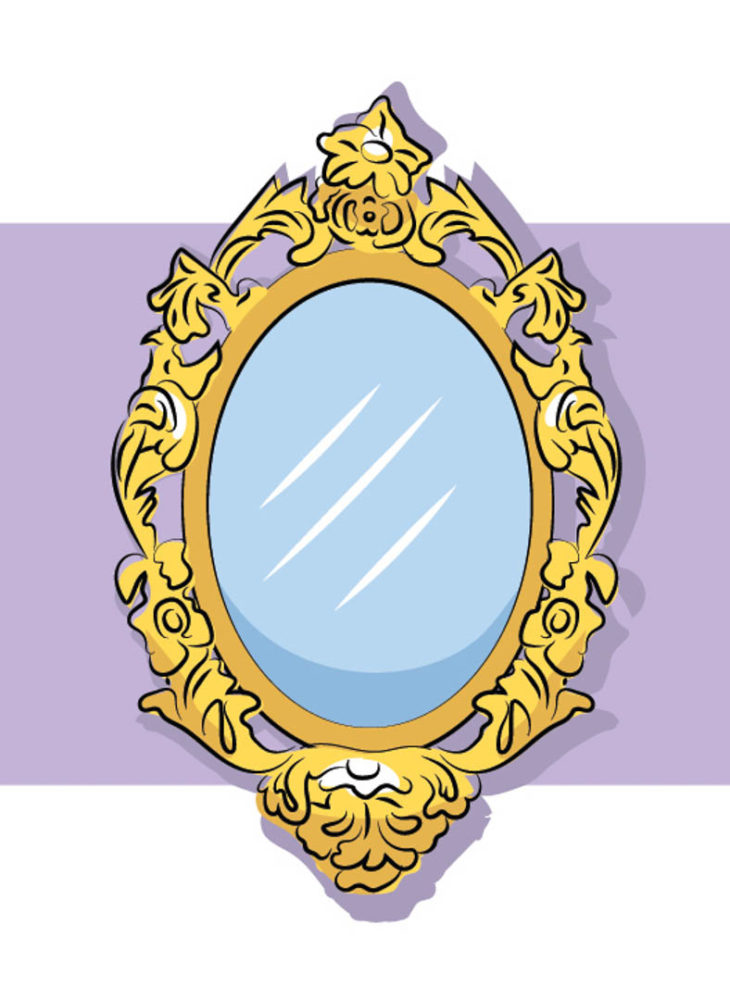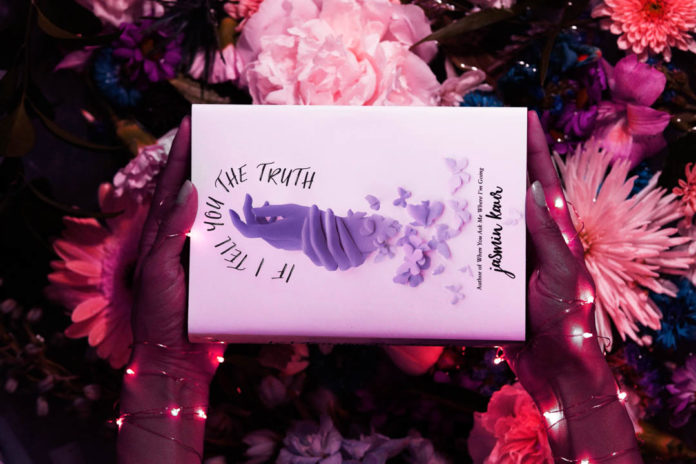Local author, poet, and University of the Fraser Valley alumnus Jusmun Kaur released her second novel, If I Tell You the Truth, in January 2021. After the success of her first novel, When You Ask Me Where I’m Going, Kaur thoughtfully stepped to the forefront of advocacy for women of colour. These two books of poetry and prose target the prejudice and discrimination Kaur, and other women of colour, must confront and overcome in a world slow to evolve.
As a proud Sikh woman from Abbotsford, B.C., Kaur found her voice studying creative writing and poetry at UFV, and in doing so, became a bold example for millions of women of colour around the world. She notes the influences English professors Andrea MacPherson and Michelle Superle had on her development as a writer and poet.
“The professors helped me realize the power of my own writing, and it encouraged me to keep going,” said Kaur. “I think that when you’re an undergrad and you’re seeing all these amazing writers around you and you’re seeing this giant industry, this behemoth publishing industry, you kind of don’t know how to see yourself within it. It was professors like Michelle Superle who helped me find my way.”
In 2018, Kaur’s poetry and prose attracted international attention when one of her poems, Scream, was altered and “colonized” by a white person looking to use the poem to motivate others to vote. Kaur defended her poetry and offered a perspective many with white privilege missed while plagiarizing her poem:
 “I write to exist. To be seen. To hold a mirror up to myself + women who look like me. In a world that very selfishly consumes the work of women of colour and marginalized folks. If you share my poetry (or your version of my poetry) without actually understanding who I am and why I am, you’re engaging in my work passively. If you, as a white person, feel that I matter so little within the context of what I create that you can remove me from the work all together, you’re colonizing my poetry.”
“I write to exist. To be seen. To hold a mirror up to myself + women who look like me. In a world that very selfishly consumes the work of women of colour and marginalized folks. If you share my poetry (or your version of my poetry) without actually understanding who I am and why I am, you’re engaging in my work passively. If you, as a white person, feel that I matter so little within the context of what I create that you can remove me from the work all together, you’re colonizing my poetry.”
The incident went viral and attracted the attention of prominent celebrities like Reese Witherspoon, Tessa Thompson, and musical superstar Jennifer Lopez, who used Kaur’s poem as an introduction to her performance at the 2018 American Music Awards. But, she said, “I realized what was so uncomfortable for me about that revision. It was almost as if someone was taking my voice out of a poem that was about my voice. And it felt like another way to just erase me from my work.”
Even with all the attention the poem Scream has brought Kaur, she grounds herself knowing all the prejudice and discrimination she personally has faced and learned to overcome is similar to the plight of millions of other women of colour. She also is honest about the desire to learn more about the struggles other women face (for example, other types of specific racism) and hopes that her example may help others to find their own voice and identities.
 “I believe who and why I am comes to life in my poetry, even in the way I structure my poetry collection. My first book, When You Ask Me Where I’m Going, is a collection of poetry and prose that journeys into the human psyche,” offers Kaur.
“I believe who and why I am comes to life in my poetry, even in the way I structure my poetry collection. My first book, When You Ask Me Where I’m Going, is a collection of poetry and prose that journeys into the human psyche,” offers Kaur.
Kaur talked about how she came to realize the overwhelming discrimination and prejudice while she was growing up in her local community: “You start with these external layers where being a person of color, being a Sikh, and being a Punjabi woman in a society and community that is not always hospitable to our existence. I live in a community that reminds you of your differentness in the most unkind possible ways.”
“I think growing up as a Sikh girl in Abbotsford, and specifically in the Fraser Valley, I was reminded of my differentness by the glares I’ve received. Walking down the street, the microaggressions and the invasive kind of digs about how ‘you must be oppressed because of your appearance’ as they stare at the turban on my head,” Kaur offers as an example. She says she has found similar shared experiences with women of colour in different parts of the world.
The impact of the prejudice and discrimination she has experienced has built up over the years, but Kaur has transformed these negative experiences into a positive and powerful voice.
“All of these things would add up for anyone. They kind of layer up over time, even though they seem like small comments, but they definitely have weighed down on my psyche. But they’ve helped me find strength in who I am and my experiences with these kinds of oppression, and those microaggressions definitely come out in the antiracist poems that I write.”
Reflecting on how she became a CBC “writer to watch” and a Vogue Magazine “rising star,” Kaur said her interest in spoken word poetry started in high school as she watched YouTube videos with friends. Soon she was working on her own poetry and, while hosting an event, decided to include one of her poems. Kaur was hooked. She completed high school and transitioned into her university education.
Kaur said she found a love for creative writing while attending her undergraduate studies at the University of the Fraser Valley. She was initially interested in teaching as a profession and graduated with her BA in English in 2016. The next year, Kaur was completing her teacher education Professional Development Program (PDP) at Simon Fraser University. Graduation from PDP quickly led Kaur to a job teaching at an elementary school.
During this time of career development, Kaur said she realized something was missing from her life, and she was still drawn to creative writing and poetry. Taking time to contemplate what she was really looking for, Kaur soon found the missing piece was the joy of creative writing and collaborating with other writers and poets.
After deciding to leave her career as a teacher, Kaur enrolled for her master’s degree in Creative Writing at the University of British Columbia. She found herself back in the familiar world of a creative writing community.
“I’ve connected with amazing authors who are also professors like Jenny Ferguson and Nancy Lee, who have just reminded me of why I wanted to come back to school in the first place,” said Kaur.
“I’ve so missed that kind of community space where writers are helping me become my greatest writer self. That’s what I’m loving right now about being back at UBC,” Kaur said. “To be back in these workshop spaces, it’s the community that lifts you up as a writer and challenges you to do better. They push you to see those areas in your work where you have space for growth and ultimately help you become a better writer in the process.”
It is in these community spaces that Kaur draws support and works to transform this inspiration into powerful messages that can overcome barriers of race, gender and sexuality. When asked what people without agency, or those facing structural disadvantages, can do to learn, evolve, and support women of colour, Kaur said:
 “Because I’m an author, I’m going to say reading. I turn to this beautiful lexicon of information that is accessible to us 24/7 through the medium of storytelling. There are so many amazing antiracist books that have come out in the last few years, encouraging folks to dig deep and chat and confront their own biases. To work on being better people.”
“Because I’m an author, I’m going to say reading. I turn to this beautiful lexicon of information that is accessible to us 24/7 through the medium of storytelling. There are so many amazing antiracist books that have come out in the last few years, encouraging folks to dig deep and chat and confront their own biases. To work on being better people.”
Wise words from a young successful author building on a career already inspiring countless women of colour around the world. But Kaur believes the wisdom she’s gained directly connects to the long history of women without a voice or representation of any kind. Through the medium of storytelling these generational stories can be transcribed into books and passed on to readers anywhere in the world.
What’s next for Jusmun Kaur after the release of her second novel? She is continuing to build her social media platform with regular posts including her poetry and prose. There’s also another book in the works.
“I’m currently working on a fantasy novel. I can’t share too much, but I can tell you that it’s a teen fiction novel set in Abbotsford and has to do with Punjabi witches.”
Kaur explains how she has found a desire to manifest her poetry and prose in the real world, beyond the limitations of the online environment.
“As I’ve been writing and publishing books I’ve really been drawn to this idea of being able to preserve my work in a physical way. I love this idea that I can physically hold my words in my hand, and that they can be found in libraries, bookstores, and on bookshelves,” said Kaur. “They can be experienced and enjoyed without the overstimulation of technology, and focus on meaningful engagement or understanding.”
Jusmun Kaur’s novels of poetry and prose can be found online and in local bookstores.
Illustrations: Brielle Quon/The Cascade | Photo courtesy of Jusmun Kaur
Steve is a third-year BFA creative writing/visual arts student who’s been a contributing writer, staff writer and now an editor at The Cascade. He's always found stories and adventures but now has the joy of capturing and reporting them.


